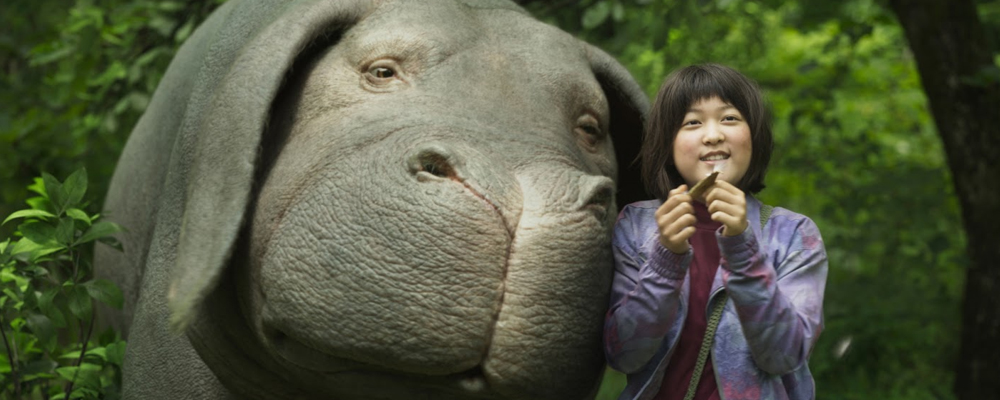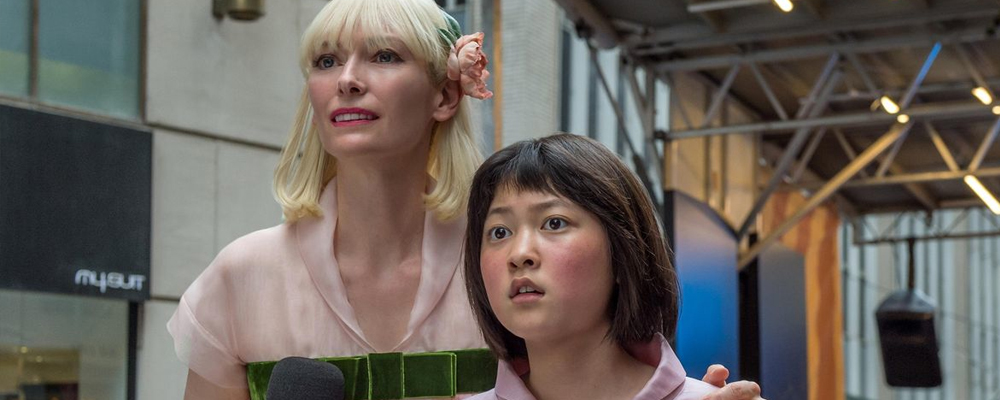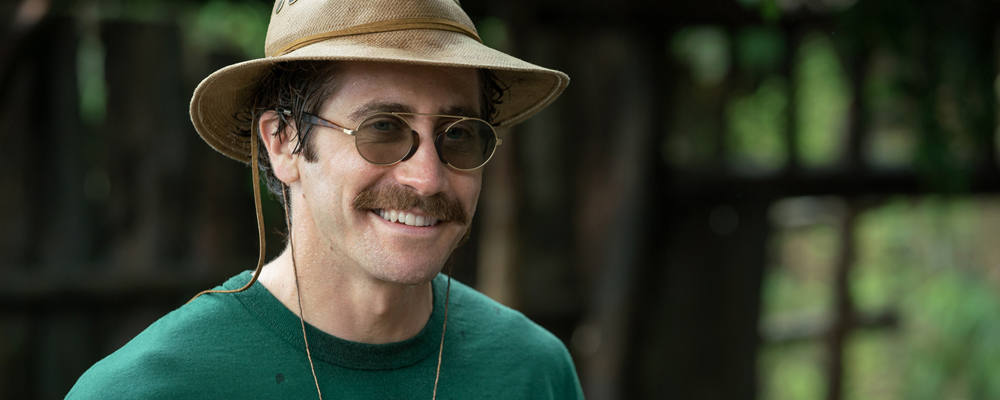Thought-Provoking ‘Okja’ Asks How We Plan to Feed a Planet With a Rising Population
Monet Clayton
“Okja” is a thought-provoking and intriguing film that digs deep into the relationship between environmentalism and capitalism. Enveloped between the bizarre scenes, the film focuses on the genetic engineering of animals, ultimately asking the question, “how do we ethically feed a planet with a rapidly rising population of almost 8 billion?” This is a question that scientists, ecologists, philosophers and politicians have been grappling with for years – but for the corporate giants as the Mirando Corporation, the answer is simple: create a new species of genetically modified “super-pigs” that grow huge in size, while eating less than conventional animals, providing maximum food with minimal environmental impact.
The company’s chief executive, Lucy Mirando (Tilda Swinton), takes 26 of their best specimens and sends them to farms around the globe to discover in which environments they can live and grow most successfully. Thus we meet Mija (Ahn Seo-hyun), a young Korean girl who has been raising Okja, one of the star specimens, on her grandfather’s mountaintop farm for almost 10 years.
Okja is both her pet and her best friend. Their idyllic days are spent frolicking and getting into various scrapes atop the mountain. But with the 10-year trial ending, it is time for Okja to return to New York for judgement day.
Enter celebrity TV zoologist Dr Johnny Wilcox (Jake Gyllenhaal), the “Face of Mirando,” to tear Okja away from her mountain home, and cue the start of Mija’s quest to rescue her four-legged friend, aided by a group of pleasingly comical animal-rights activists, known as the Animal Liberation Front (ALF), led by Jay (Paul Dano).
With Mija determined to save her best friend, the Netflix original movie is essentially a “lovable hero sets out to rescue kidnapped pet” story in the vein of “101 Dalmatians” or “ET.” Director Joon-Ho Bong does not go overboard with the moralizing but plants enough of a seed to force you to question the ethics of mass food production and genetic engineering. Bong has clearly decided the key to approaching a complex, difficult subject in an accessible way is through comedy, and the performances reflect this.
Swinton’s Lucy is a bumbling parody of the well-meaning, but ultimately doomed, face of environmentally-friendly capitalism. Her sister, Nancy (also played by Swinton), is a pantomime caricature of capitalism with no such fluffy pretensions.
Dr. Johnny is the sort of pathetic, washed-up B-lister you expect to find selling his soul to the Celebrity Big Brother house in the hope of one last grasp at fame, and Jay and his crew are basically a comedy troupe with balaclavas – one member, Silver (Devon Bostick), is so dedicated to the environmental cause that he’s constantly on the verge of fainting from hunger, refusing to even eat food in order to lesson his carbon footprint.
In the end, all seems well in the world of “Okja.” While the plan is to expose Miranda Corporation’s precious super pigs as genetically engineered, ALF uncovers and exposes animal abuse within the walls of Mirando Corporation. Mija prevails in saving her friend and the two return to the picturesque mountains on South Korea, leaving a story book ending for Okja, but not for the hundreds of super pigs left behind, destined to be slaughtered.
Even with standing ovations at its Festival de Cannes premiere, the film attracted attention for all the wrong reasons when an already hostile audience of cinema purists, averse to a Netflix production being allowed into the hallowed fold, were angered by the film being projected in the wrong aspect ratio. Now that it is finally available on Netflix, it will attract plenty of attention again, and this time for the right reasons – as a thought-provoking and heartwarming movie.
“Okja” is available to stream on Netflix beginning June 28.





